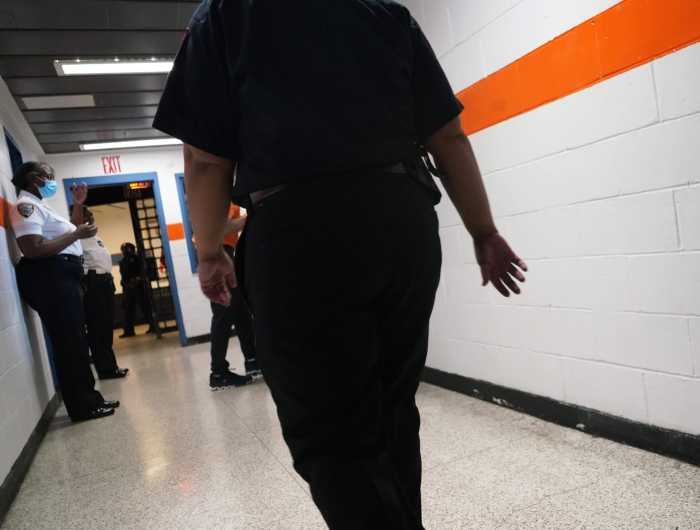John Kerry hasn’t changed his stance on the war in Iraq. Pres. George W. Bush has.
The we-can-go-it-alone Bush revolution is over. The United Nations is already involved, having selected the new Iraqi interim government, though critics have pointed out that the credibility-impaired Iraqi Governing Council, appointed by the U.S., got the best of the U.N.’s Lakhdar Brahimi in that process. Bush will also make a personal appeal to NATO this month to help in securing Iraq. The president has now come closer to Kerry’s position on how to conduct American foreign policy.
Kerry’s indictments of the administration’s foreign policy are often harsh, though when asked about the formation of the Iraqi interim government, the senator wished the administration well.
“I hope it works,” he recently said.
Kerry promises that he, too, will “speak softly and carry a big stick” just like Theodore Roosevelt, hero to liberal Republicans. Of course, Kerry is, in the process, suggesting that these increasingly marginalized Republicans should vote for him.
The Massachusetts Democrat, in starting to lay out his foreign policy goals, has a set an ambitious objective. Republicans have consistently won higher favorability ratings on foreign policy, but Kerry is adroitly hammering away at the administration’s foreign policy failures. The war in Iraq has gone so badly that 3,600 additional U.S. troops are being transferred from South Korea to Iraq, despite a tense, and potentially very dangerous, relationship with North Korea.
Kerry simply sounds more presidential than Bush. In a recent speech in Seattle that drew hundreds of participants who stood in the rain waiting, Kerry amplified on the Theodore Roosevelt theme: “If a man continually blusters, if he lacks civility, a big stick will not save him from trouble.”
Kerry accused the Bush administration of resorting “to force before exhausting diplomacy. They bullied when they should have persuaded.”
The ability to present his viewpoint, to declare rather than explain, is an essential quality in campaigning, as Delaware Sen. Joe Biden has advised the candidate, and Kerry is showing he has the goods.
The senator’s harsh indictment of the administration is balanced by his solemn vow that “this country is united in its determination to defeat terrorism.”
America’s foreign policy will remain a predominant issue in this campaign, but the way events actually unfold in coming months will determine the outcome of the election. Bush will meet with European leaders several times in June. Will he handle himself well or will he embarrass the United States with blustery statements like “Bring it on”? The Iraqi interim government has been named, and at first glance it appears closely tied to the United States. Will Iraqis accept this proposal? How effectively will this temporary government rule between June 30 and next January’s national elections?
Events will play a far more powerful role than anything Kerry can say or do.
The basic pattern of the campaign has been set—foreign policy will be debated, but Kerry will not second-guess the president when it comes to matters of national security.
As a result, social issues like gay marriage and Kerry’s character are likely to play a prominent role. Also, growing budget deficits will prevent Kerry from proposing popular, but expensive, domestic programs.
Unfortunately this predicament allows the Republican attack machine to go on a rampage. Scott Reed, who ran Robert Dole’s 1996 presidential campaign, told the Washington Post: “With low poll numbers and a volatile situation in Iraq, Bush has more hope of tarnishing Kerry’s image than promoting his own.”
An astounding 75 percent of the Bush TV ads have been negative—49,050 in the top 100 markets. Kerry has run 13,336 negative ads, only 27 percent of his total.
The war in Iraq won’t be a tricky issue for campaign strategizers, but it will remain a large issue before the public. Bad news in Iraq could cause continuing problems for the president. The Republicans will continue to argue that liberal policies are the cause of national problems at home.
It is here that Kerry can be the good guy, with a winning slogan: “Let America be America, again.”
































